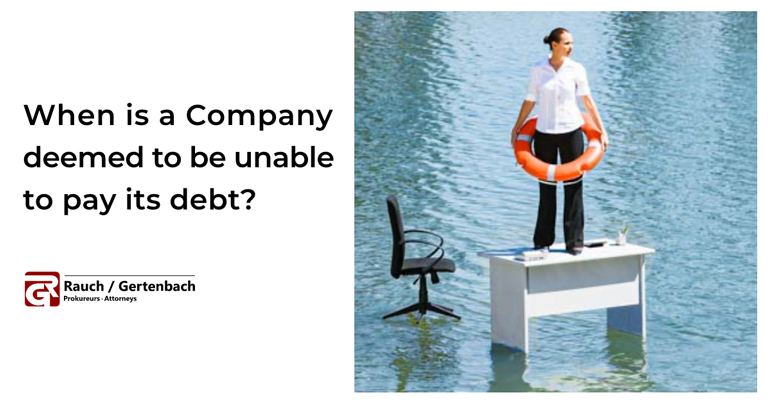When is a Company deemed to be unable to pay its debt?
As a consequence of Covid 19 and the contraction in the economy, many companies have been left under immense financial pressure resulting in a position where they find themselves unable to pay their debt as and when it becomes due. Therefore, the question under discussion today is when is a company deemed to be unable to pay its debt? This is an important consideration since a company deemed unable to pay its debts may be wound up at the instance of a creditor.
Section 344 of the Companies Act, 1973 (“the Companies Act”) sets out eight circumstances in which a company may be wound up by the court. The inability of a company to pay its debt as described in section 345 of the Companies Act is by far the circumstance relied upon most often in practice and in applications by creditors to wind up companies.
Section 345 of the Companies Act describes when a company is unable to pay its debt and states that a Company shall be deemed unable to pay its debt in the following circumstances:
- if a creditor, by cession or otherwise, to whom the company is indebted in the sum not less than R100 then due, has served on the Company, by leaving the same at its registered office, a demand requiring the Company to pay the sum due and subsequently has for three weeks thereafter neglected to pay the sum or to secure or compound for it to the reasonable satisfaction of the creditor; or
- any process issued on a judgment, decree or order of any court in favour of a creditor of the company is returned by the sheriff or the messenger with an endorsement that he has not found sufficient disposable property to satisfy the judgment, decree or order or that any disposable property found did not upon sale satisfy such process; or
- it is proved to the satisfaction of the Court that the company is unable to pay its debts.
In determining whether a company is unable to pay its debt, the Court shall also consider the contingent and prospective liabilities of the Company.
The test to be applied in determining whether a company is unable to pay its debts is whether it is commercially insolvent in the sense that it is unable to meet its day-to-day liabilities in the ordinary course of business.
Our Courts have previously held that the primary question which a court is called upon to answer in deciding whether or not a company carrying on business should be wound-up as commercially insolvent, is whether or not it has liquid assets or readily releasable assets available to meet its liabilities as they fall due to be met in the ordinary course of business and thereafter to be in a position to carry on normal trading – in other words, can the company meet current demands on it and remain buoyant? It does not always matter that the company’s assets, fairly valued, far exceed its liabilities. Indeed, once the Court finds that the company cannot pay its creditors, it follows that it is entitled to, and should, hold that the company is unable to pay its debts and wind-up the company.
Therefore, once the Court finds that the Company cannot meet demands on it from creditors, the Court may, and should, grant the order that the company is wound up.
Article by Enrico Acker: Insolvency and Business Rescue specialist.
For more information, kindly contact Enrico at enrico@rgprok.com or 044 601 9900.
___
Disclaimer
Nothing contained in this publication is to be considered as the rendering of legal advice for specific cases, and readers are responsible for obtaining such advice from their own legal counsel. This publication is intended for educational and informational purposes only.








